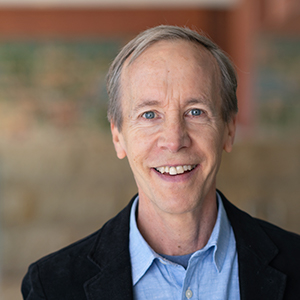Four facts: Twenty years of building have created tremendous prison capacity. Crime rates have fallen. The number of inmates in state prisons fell in the second half of 2000, the first such decline in nearly three decades. The recession is forcing states to trim budgets.
A reasonable conclusion: This isn't a great time to grow your town by hosting a prison. Indeed, recent Ninth District events indicate that the winds continue to shift against further prison growth.
In November, Michigan's governor announced that the state's balanced budget amendment compelled him to cut the corrections budget, forcing layoffs at most Michigan prisons, including facilities throughout the Upper Peninsula (see "Prisons hit hard by budget cuts").
In Wisconsin, some analysts suggest that the newly built New Lisbon prison may be mothballed because the state lacks funds to operate it. In addition, county sheriffs—some of whom overbuilt their jails in anticipation of earning state revenue for housing state prisoners—are being told that the state is cutting prisoner payments.
Minnesota's corrections secretary has announced a policy of squeezing efficiencies from existing prisons rather than building more.
Montana's governor says that after her predecessor's building binge, she's going to take a break: "We have enough cells. For now," she said in her inaugural speech.
South Dakota plans to close its state youth penitentiary because it doesn't have enough wayward youth.
North Dakota is studying its corrections situation in hopes that it won't have to build more prisons.
Even private developers, who fanned the prison-building flames for two decades, concede it may be time to look at other markets. "Today is not a good time to go build speculative prisons," said Jim Hunter, executive vice president of Dominion Venture Group, an Oklahoma firm that built prisons in Appleton, Minn., and Stanley, Wis. "Maybe a year or five years from now it'll be appropriate again. But no, not today. There's really very few opportunities out there right now."
Hunter notes that demand for prisons is more than a numerical difference between inmates and inmate beds. "Demand is political. Demand is cultural," he said. "There has to be the will and the need and the sense of distress and the cash and all the things that enter into what I consider demand for bed space."
Changing sentiment
Demand for prison beds also weakens when policymakers consider cheaper alternatives for less-risky inmates. In the Ninth District, as elsewhere, politicians are rethinking the "get tough" policies that contributed to the prison building boom.
Wisconsin gubernatorial candidate, Kathleen Falk, for example, recently launched her campaign by calling for an end to prison building and a shift of resources to structured probation and treatment programs to reduce drug abuse. The current governor, Scott McCallum—faced with budget deficits—appears to support an unofficial moratorium on prison building, though Wisconsin continues to house many prisoners in other states.
In North Dakota, Rep. Duane DeKrey, head of the Legislature's interim corrections committee, said that in August 2001 the state dropped mandatory sentencing for first-time drug offenders—a significant factor in the state's accelerating incarceration—and shifted resources into drug rehabilitation and alternative sentencing. "This way you can keep them employed, they can be contributing members to society, paying taxes, and you can still watch them because you've got them electronically monitored," he said.
The change marks a dramatic shift in philosophy. "When I was first in the Legislature about 10 years ago," noted DeKrey, "we went through a spell where we really got tough on crime. The effect of that fiscally is that our corrections budget has skyrocketed. And for every dollar that you're spending on corrections, you're not spending that on primary and secondary education, you're not spending it on the colleges [or] tourism. It's just money down a rat hole, basically."
So now North Dakota is determining how best to economize on its use of prisons, rather than building its way out of the crime problem.
Said DeKrey, "We're coming to view corrections [as] a last resort."





